Earth Day may be an invitation to pause and celebrate our planet, but it’s a little like bringing balloons and cake to a loved one on their sick bed. The very systems that work to sustain and inspire us – rainforests, oceans, biodiversity – are far from healthy, and are constantly under threat from climate change, pollution and habitat destruction. To take the party metaphor further, the streamers and birthday cards only mask the root cause of the disease – the loss of connection between people and nature.
Sorry, did I make Earth Day sound totally overwhelming and hopeless? What I meant to say is: the cure for all the misery could be just a title away.
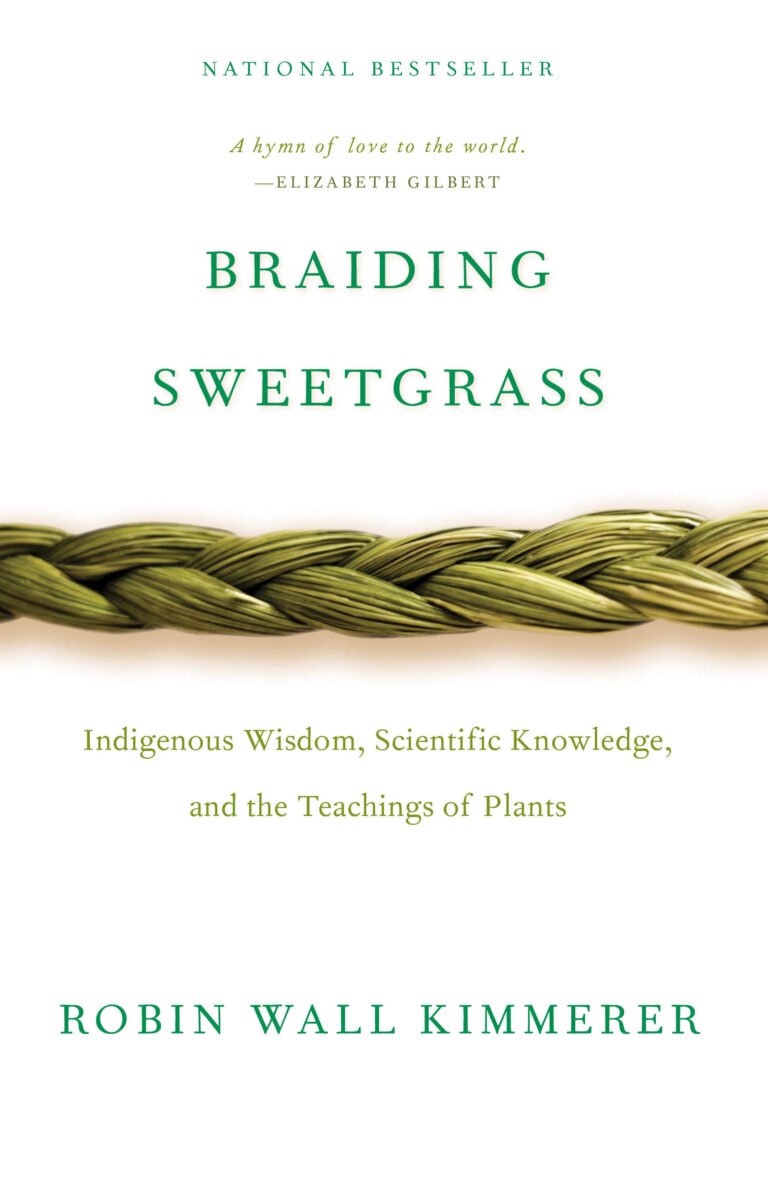
1. BRAIDING SWEETGRASS by Robin Wall Kimmerer: I can think of no better title to head this list. Written by a poet-writer who is appreciates plants through the lens of a botanist and through the teachings of her Anishinaabe people, this book is so many things at once.
It is an elegant work of science, and every lesson on plant biology is intertwined with chapters of her life and imbued with indigenous wisdom. We learn about the phytochromes of a maple tree when she attempts homemade syrup, about the rich cycle of decomposition as she tries to clear a pond for her girls to swim in, about the population patterns of black ash saplings as she leads students through research that confirms the old ways. Through plants, we also learn about our own human-ness – about gratitude, neighbourliness, motherhood. So it is a tome of spirituality, too. She is unapologetically a scientist and a woman ‘raised by strawberries’, who follows ‘the council of pecans,’ and urges us to go out and talk to the grasses.
Braiding Sweetgrass is a love-song to the plants who give so generously, so that we might learn to give back. It’s a time-song that tracks the history of habitats and the politics of habits, with the hopes that we might harmonise with nature. These chapters equip you to look upon every plant like family, with newfound tenderness and respect. In this way, it’s above all a heart-song, sung to you to nourish you, in a way that will make you want to sing back.
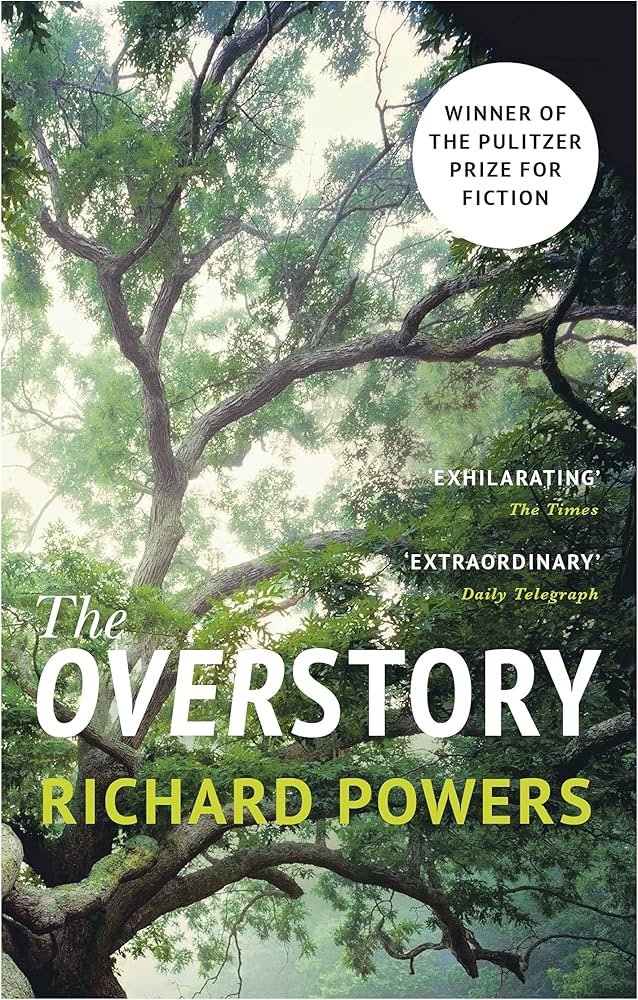
2. THE OVERSTORY by Richard Powers: If you’re not head-over-heels in love with trees yet, you will be by the end of this book. It is as sweeping, as powerful and as magnificent an anthem as I can think of for tree-huggers and conservationists. Richard interweaves the lives of nine Americans bent upon the same mission – to save old-growth forests on the continent. It’s a worthy and urgent cause – in an interview with Dan Kois, Richard says: ‘Almost all the great forests of North America have been logged, and most of them have been clear-cut. No more than 5 percent of the primary, old-growth forests of the continent remain. For redwoods, the surviving percentage is even lower.’
Some of the characters are moved enough that their journeys to converge onto a path of physical resistance and civil disobedience – laying before heavy machinery, living high up in Mimas, the largest redwood in the forest for obstinate months. They take on tree-inspired code names as their activism becomes all-consuming, their methods turning extreme. The rest find their lives intertwined with trees in different ways – we dive into the lives of an Asian boy who suffers an accident that leaves him able to move only through virtual reality, a woman who upends notions of forestry through her work as a ranger, and a couple trapped in suburban domestic upheaval.
The theme of The Overstory is nature and sustainability, but the real triumph is the way human lives are laid bare. And all the while, there are the trees, and the wordless but unmistakable way that they shape the journey of Earth’s most destructive, yet most passionate, creatures.
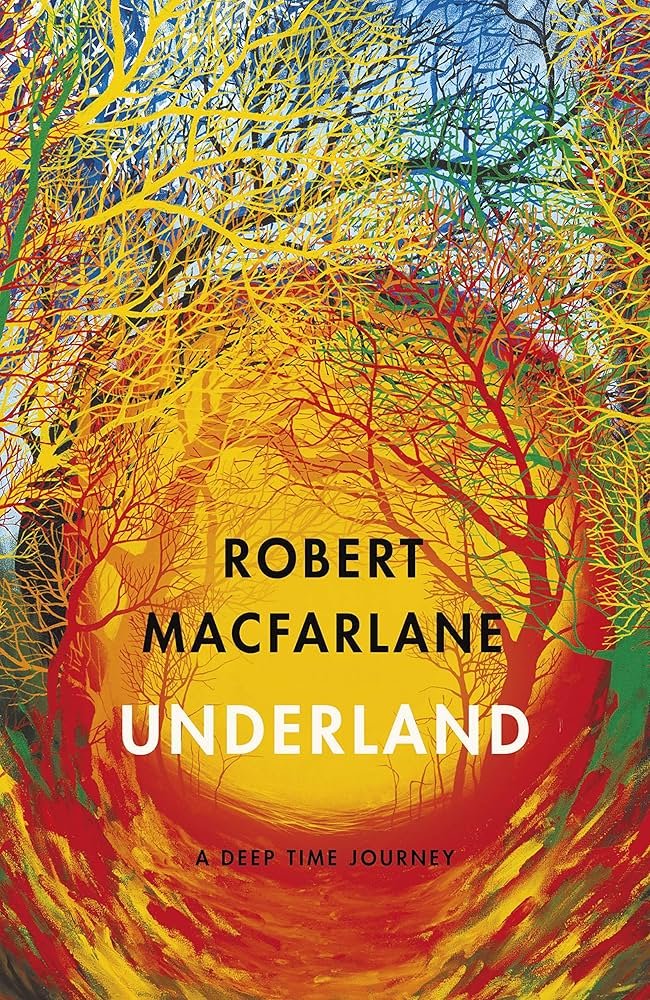
3. UNDERLAND by Robert Macfarlane: Before I read this book, I barely gave the ‘underland’ – caverns, rivers, layers of soil under our feet – a second thought. But these stories, once you read them, will never leave you.
Robert embarks on several journeys to places where the notion of time itself takes on a new – or old – twist. He begins in the underground caves of England, places of recreation which are also ancient burial grounds, and then to the drifts under Yorkshire where chemistry is in abundance and cutting-edge physics is quietly unfolding. He chases underground rivers through Europe and partakes in the adrenaline of running with a cult of explorers through the labyrinthine catacombs of Paris.
Every journey he conveys is remarkable, all the way to the icy north where intrigue profligates in the dark. And so, too, are the men and women who lead him there, guiding him with the scintillating balance of courage and care gleaned from their observance of all things deep.
Robert is not merely a curious spelunker, and his readership has the advantage of stories couched in poetry. Because he is a poet, he describes not only the geology and anthropology, but also what the transition from the netherworld to the surface will do to a human soul. Because he is a poet, scenes from eras past are animated on the page, appearing to dance before us.
Because he is a poet, my own copy is treasured, dog-eared and often re-read, and I wish the same for you.
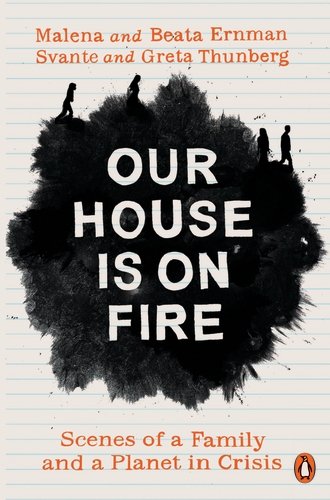
4. OUR HOUSE IS ON FIRE by Malena and Beata Ernman, Svante and Greta Thunberg: Young, brave and principled, Greta Thunberg has become an institution in a time where the climate crisis is at its peak. This phrase is one of her most famous – urging us to act now. I thought that this book would begin with Greta’s first act of civil disobedience – her solo school strike outside the Swedish Parliament in 2018. I was wrong. Written by the entire Ernman-Thunberg family, their story is largely from the point of view, Malena and Svante, tracing moments from before their girls were born.
Because Greta is so confident and fearless in the public eye, it’s easy to assume that she is independent, born to lead the world in advocating for the planet. And maybe she is, but not before conquering her own demons – the days when her neurodivergence was a debilitating and devastating, when she was on the brink of a medical crisis, before she had the wherewithal to do something as brave as protesting a parliament alone. For that, she needed a supportive and nurturing family, and in this book, we get an intimate look into their lives.
Former opera singer and stage actor, Malena and Svante recount the seasons of crises they lived through in the early and all-consuming days of Greta’s (and then Beata’s) symptoms, diagnosis and support, the dawning knowledge of the environment and the way they shaped their lives around their advocacy of climate change and parenting.
Written as a series of scenes, each spanning only one to two pages, it’s a raw, quick and compelling read.
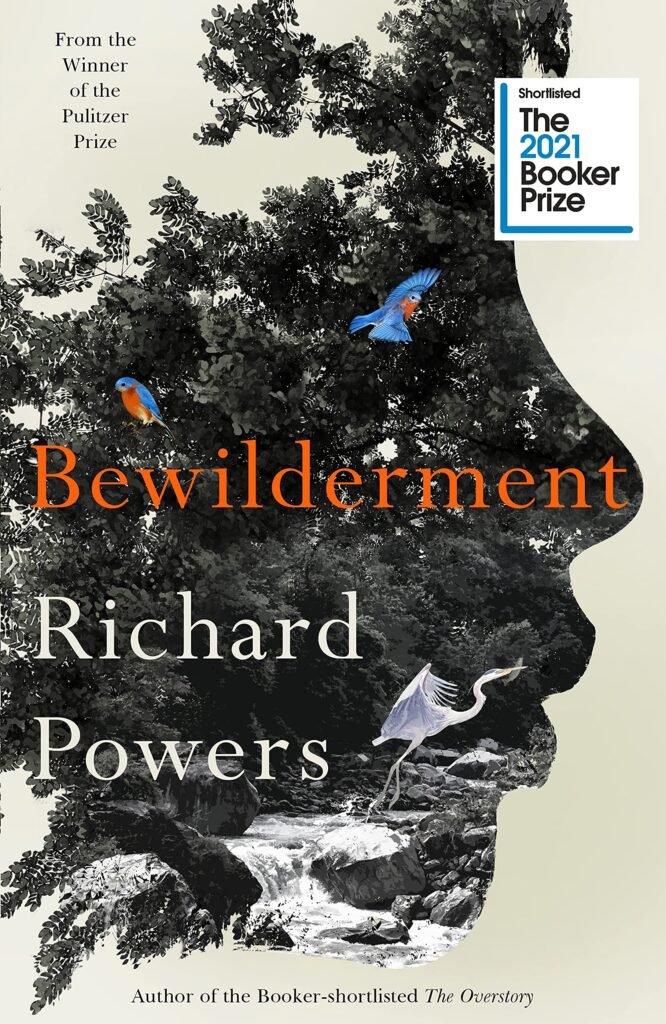
5. BEWILDERMENT by Richard Powers:
Sorry not sorry for including another Richard Powers on this list, but his writing is brilliant in both. Bewilderment is as compact as The Overstory is sprawling and shares aspects of activism and conservationism – even Greta Thunberg makes a cameo as a fictionalised character!
Theo is as astrobiologist with a 9-year-old son, Robin, who sees the world differently. There are days when father and son can escape into nature and the comfort of imagine planets, but other days are challenging for many reasons – grieving for Robin’s mom who was killed in a car crash, and dealing with his fierce love of all living things, anger at the human race for ruining the natural world.
When Theo and Robin run out of ways to cope, Robin is enrolled into a neurofeedback programme which makes their lives simultaneously beautiful and perilous.
Aside from the environmental messaging, I also adored the tenderness of family scenes and Richard’s writing. Put simply, I fell in love with the characters and found in this slim but masterful novel a certain kind of literary perfection.
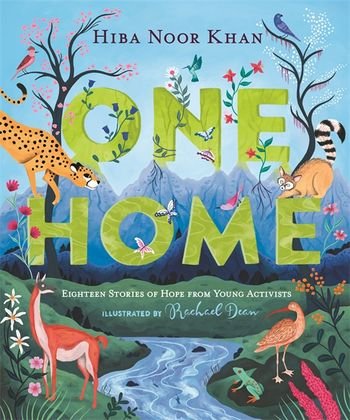
6. ONE HOME by Hiba Noor Khan and Rachael Dean: Alas, our activist wunderkind does not feature in this beautiful, full-coloured volume, but you are still treated to 18 inspiring young activists and conservationists from around the globe. Hiba has chosen activists from the Marshall Islands where rising sea levels threaten extinction, from Iran where celestial bodies are obscured by pollution, from a New Delhi engulfed by single use plastic just to name a few.
Each activist’s inspiring bio is followed by a rick description of their home, providing a valuable resource of geography, ecology and culture. Rachael has illustrated friendly characters and packed the pages with so many species of liocal flora and fauna.
There can’t be activism without action, so a challenge is put to the readers at the end of every chapter, ranging from mindful appreciation of nature to buildling simple habitats.
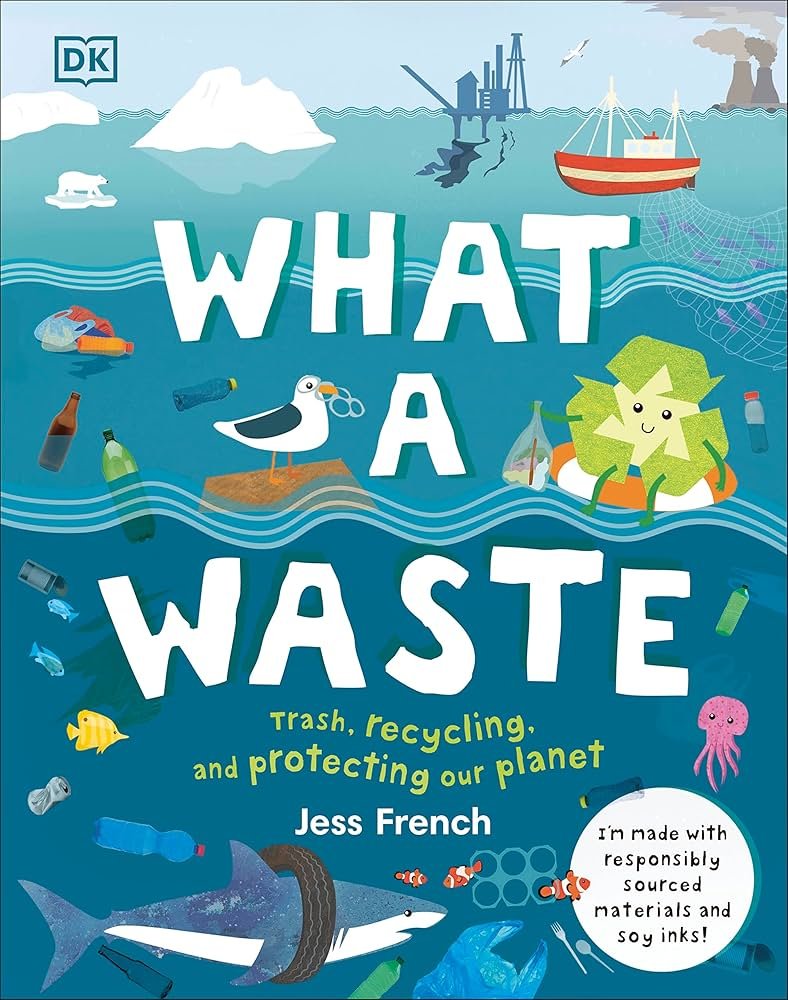
7. WHAT A WASTE by Jess French: An excellent, informative non-fiction book that allows kids to relate the huge problem of global waste to objects and events in their everyday lives. Despite the enormity of this issue (the Great Pacific Garbage Patch, for example, being 3 times as large as France), the environmental impacts of waste are often invisible, especially in the so-called first world. Being able to pinpoint a cause and trace it to its effects is vital in inducing change, and young minds will take heart from the messages here.
Love the infographics and the breadth of knowledge shared in format and language that’s easily digestible by a primary school aged reader.
* with my own copy in storage at home, I can’t for the life of me find the illustrator to credit from any of the sources online. For this grave omission, I apologise. Did Jess illustrate this herself? Please let me know and put me out of my misery!
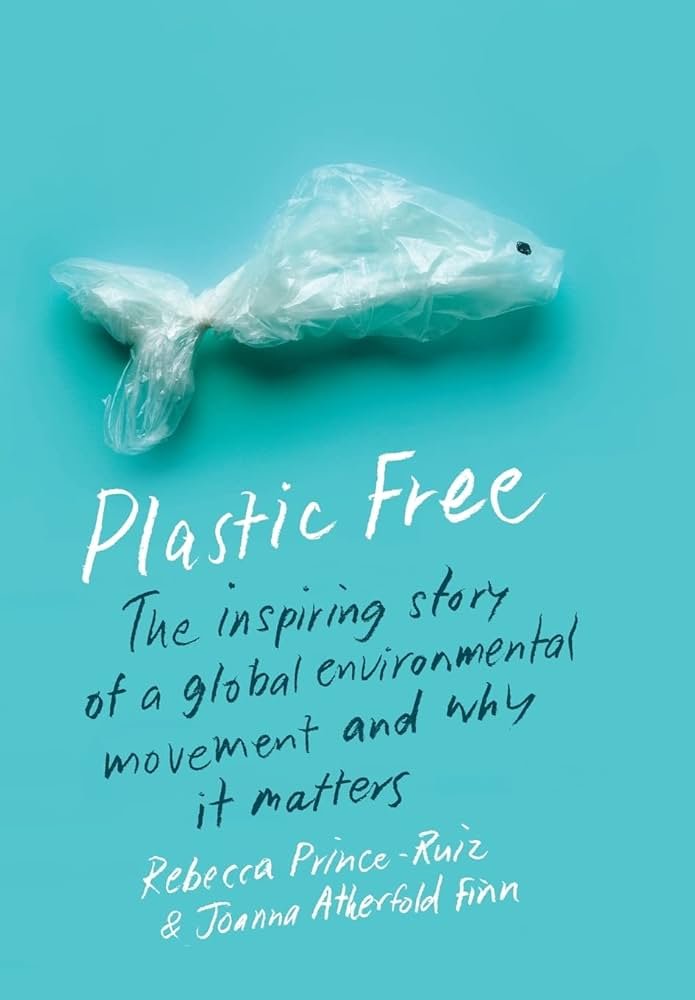
8. PLASTIC FREE by Rebecca Prinze-Ruiz and Joanna Atherfold Finn: Plastic Free July feels like it’s been around forever, but it was actually coined very intentionally in 2011, and this is its story. What started as an idea around the office became a global movement, and a much-needed one in the face of growing plastic pollution. In this highly-readable non-fiction, Plastic Free July founder Rebecca brings writer Joanna on board to tell the story of its inception, the impact it has had on individuals, organisations and communities, and the firm promise that a more plastic free world is very much within our grasp.
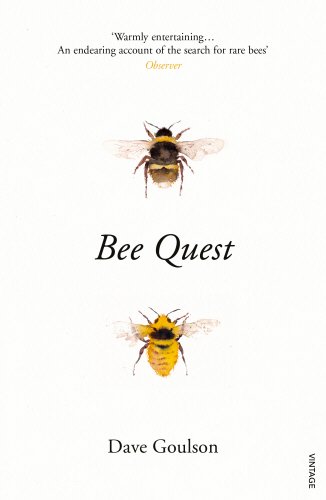
9. BEE QUEST by Dave Goulson: I imagine Dave as a cheerful, jolly entymologist, skipping into gardens, meadows and fens with unbridled enthusiasm and infectious love for winged creatures. His quest for Earth’s rarest bees will take you ‘from Poland to Patagonia’, but for the most part he roams the British Isles, chasing bumblebees around the Outer Hebrides, England’s hedgerows, rewilded forests. With expert knowledge and chuckle-out-loud humour, he transforms even mere muddy puddles into unique ecocystems in our minds’ eyes.
We can’t have plants without pollinators, and our lessons on bees spill over into lessons on farming and sustainability, connecting these tiny but mighty creatures to tectonic impacts on the Earth. You’ll never look at a bee, or a tree, or a hill, or a mountain the same way again.
Let me know which ones you’ve read, which ones are calling out to you. If you’re looking to purchase a title (through sustainable, non-Amazon means) , I’ve curated this list with a few extra titles thrown in on Bookshop.org.
This list, like all my lists, are always subjective and never comprehensive. But I wanted to note on a few things in particular:
The titles I’ve listed here have a terrestrial predilection; to quote a Richard Powers book (again!) although our planet is named Earth, ‘clearly, it is Ocean.’ Not to worry – I’m saving up for a different list in the not too distant future.
My recommendations are limited to books available in English (including Our House Is On Fire which was translated from Swedish) which results in a limited world view. So if there are titles you know of which draw on other cultures and philosophies, please feel free to share them in the comments.
Between this Earth Day and the next, many changes will come to pass. I would love to read more about contemporary topics like: the environmental cost of generative AI, economic reforms we can see in our lifetimes, and many, many more stories of people and planet over power and profit.
What about you?
Happy Earth Day, friends, cake and hope and all 🌍